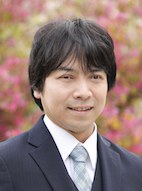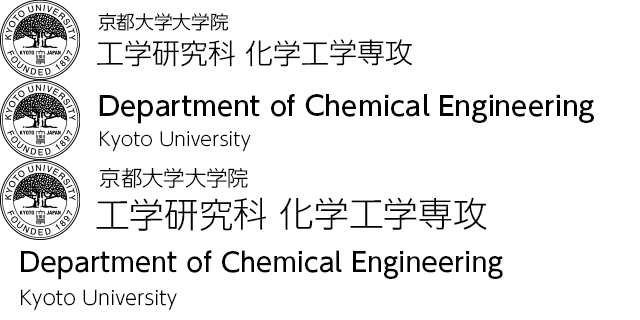Transport Phenomena
Academic Staff
Yusuke T. MAEDA
Professor (Graduate School of Engineering)
Research Topics
We study transport phenomena related to the flow of mass, momentum, energy, and information, as seen in complex biological systems. Our primary focus is to elucidate the fundamental principles underlying non-equilibrium transport in soft matter, the autonomous motion and ordered structure formation in active matter, and the energetics of nanomachines through a combination of experimental, theoretical, and computational approaches. Alongside fundamental physics and chemical methodologies, we also develop optical tools for molecular manipulation, leveraging molecular transport to create novel chemical and physical systems capable of autonomously converting energy into mechanical action. Our findings aim to pave the way for innovative engineering approaches that significantly advance chemical engineering, bridging the gap from physics to biology.
Contacts
Room 019, Bldg. A4, Katsura Campus
E-mail: maeda @ cheme.kyoto-u.ac.jp
Kazusa BEPPU
Assistant Professor (Graduate School of Engineering)
Research Topics
Collective systems composed of self-propelled entities, such as microbial bacteria, mammalian cells, birds, and fish, are referred to as "active matter" and exhibit a rich variety of collective ordering, including swarming and vortex patterns. Achieving precise control over both individual dynamics and the emergent collective behavior of active matter remains a key interdisciplinary challenge spanning physics, life sciences, and engineering. Recently, I have developed a magnetic field control technique utilizing magnetic nanoparticles, which enables microscale manipulation of active matter. Using swimming bacteria and synthetic colloids as model systems, I am investigating the mechanisms underlying the physical control of individual movement and self-organized patterns in these active matter systems.
Contacts
Room 019, Bldg. A4, Katsura Campus
E-mail: kazusa.beppu @ cheme.kyoto-u.ac.jp
Introduction to Research
1. Transport phenomena in non-equilibrium systems
In nonequilibrium systems, it is known that the spontaneous flow of matter and energy occurs and is converted into mechanical motion. Understanding the physical principles behind these phenomena has become a significant challenge in modern nonequilibrium physics—specifically, the physics of active matter.
At Maeda Laboratory, we aim to extend conventional transport phenomena theories to autonomous nonequilibrium systems by studying the turbulent dynamics of active matter using an integrated approach that combines experiments, theory, and computation. Our research focuses on the apparent disorder of turbulent flows and the underlying nontrivial order hidden within them. By analyzing vast amounts of data and uncovering fundamental principles, we explore new fields in transport phenomena for non-equilibrium systems, contributing to both physics and chemical engineering.
2. Biological physics of non-equilibrium systems
Motor proteins are high-performance nanoscale molecular motors that convert chemical energy into mechanical motion. These molecular motors not only regulate intracellular dynamics but can work through controlling the flow of energy.
At Maeda Laboratory, we study the statistical physics and energetics of molecular motors and their associated complex. Furthermore, we have interests in the fundamental rule on the speed, location, and accuracy with which molecular motors and their assemblies transport materials. Our research can find an optimal transport phenomena that minimize unnecessary energy dissipation and to experimentally verify the physical principles that define optimal transport in biological systems.
3. Computational chemical engineering of non-equilibrium systems
Reduced modeling is effective for understanding simple non-equilibrium phenomena, but predictive methods powered by machine learning are becoming increasingly essential for uncovering more complex dynamics. At Maeda Laboratory, we utilize data science methodologies to push the boundaries of discovery.
By successfully combining the multipole expansion method with machine learning, we have classified spindle growth processes and uncovered previously unknown plasticity. Our research also focuses on well-controlled experimental systems, enabling us to explore a vast range of input conditions and analyze large-scale image data to develop predictive models.Driven by this motivation, we are building a robust pipeline for computational analysis of large-scale image data and advancing data science approaches to better understand complex transport phenomena.
Recent key publications
- Negi A, Sakamoto R, Ienaga R, Miyazaki M and Maeda YT
Nano Letters 25, 17979-17987 (2025) [Press release] - Sakamoto R and Maeda YT
Nature Chemical Engineering 2, 537–538 (2025) (preview) - Fukuyama T, Yan LC, Tanaka M, Yamaoka M, Saito K, Ti SC, Liao CC, Hsia KC, Maeda YT* and Shimamoto Y*
Proc. Natl. Acad. Sci. USA 119, e2209053119 (2022) - Sakamoto R, Izri Z, Shimamoto Y, Miyazaki M and Maeda YT
Proc. Natl. Acad. Sci. USA 119, e2121147119 (2022) - Araki S, Beppu K, Kabir A, Kakugo A and Maeda YT
Nano Letters 21, 10478-10485 (2021) - Beppu K, Izri Z, Sato T, Yamanishi Y, Sumino Y and Maeda YT
Proc. Natl. Acad. Sci. USA 118, e2107461118 (2021) - Sakamoto R, Tanabe M, Hiraiwa T, Suzuki K, Ishiwata S-i, Maeda YT and Miyazaki M
Nature Communications 11, 3063 (2020)
